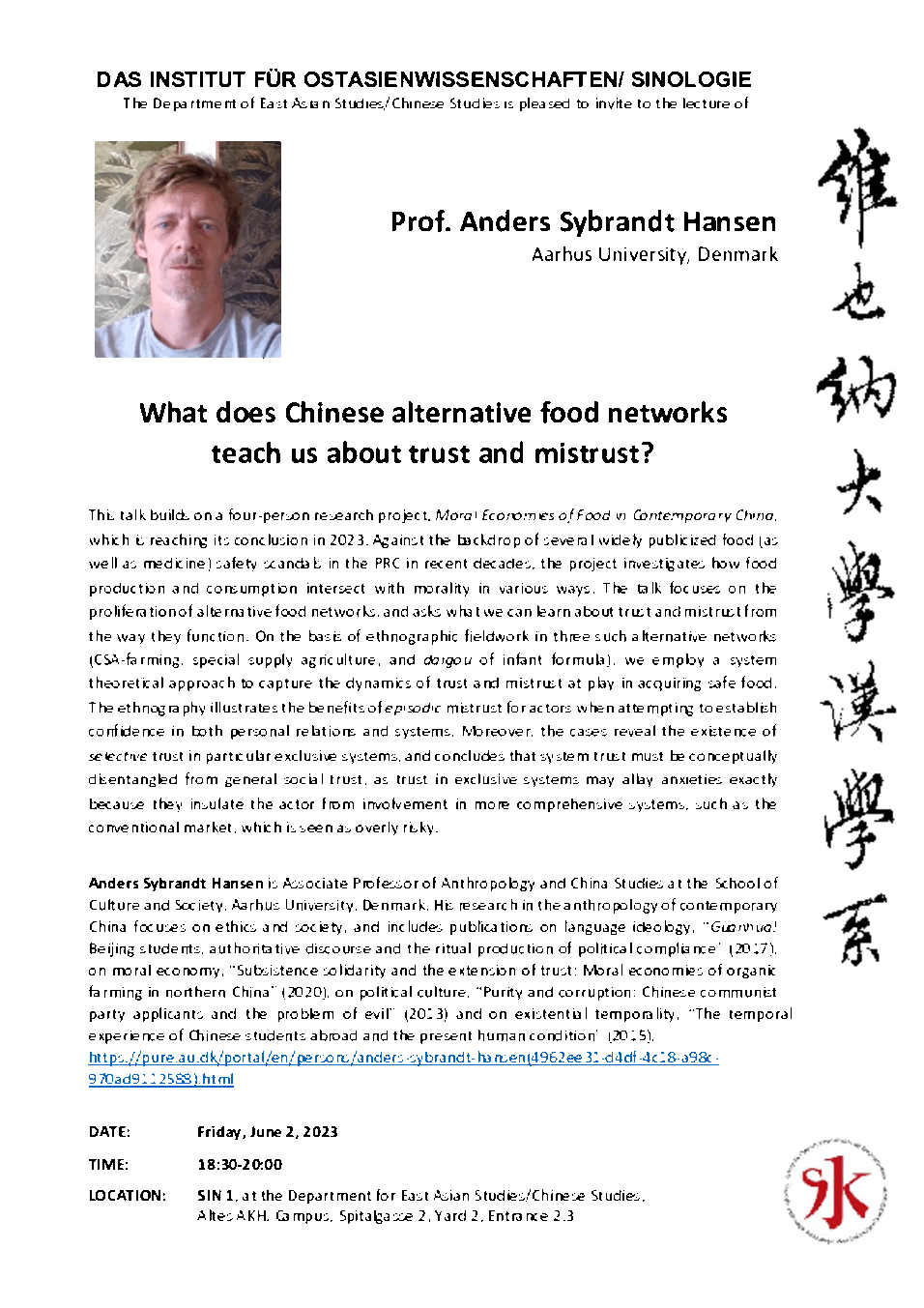This talk builds on a four-person research project, Moral Economies of Food in Contemporary China, which is reaching its conclusion in 2023. Against the backdrop of several widely publicized food (as well as medicine) safety scandals in the PRC in recent decades, the project investigates how food production and consumption intersect with morality in various ways. The talk focuses on the proliferation of alternative food networks, and asks what we can learn about trust and mistrust from the way they function. On the basis of ethnographic fieldwork in three such alternative networks (CSA-farming, special supply agriculture, and daigou of infant formula), we employ a system theoretical approach to capture the dynamics of trust and mistrust at play in acquiring safe food. The ethnography illustrates the benefits of episodic mistrust for actors when attempting to establish confidence in both personal relations and systems. Moreover, the cases reveal the existence of selective trust in particular exclusive systems, and concludes that system trust must be conceptually disentangled from general social trust, as trust in exclusive systems may allay anxieties exactly because they insulate the actor from involvement in more comprehensive systems, such as the conventional market, which is seen as overly risky.
For more information, please refer to the attached PDF

